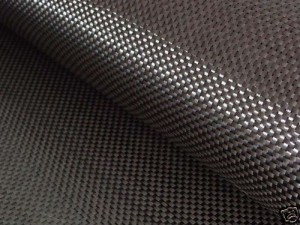 Mitsubishi Chemical Holdings Corp. will integrate its carbon fiber-related operations, currently performed separately by multiple group companies, within this year. Carbon fibers are 10 times stronger than steel but a quarter of the weight. They are used to manufacture such products as aircraft, automobiles and tanks to transport shale gas. Mitsubishi Chemical Holdings is aiming to better utilize its advantages in carbon fibers for advanced-technology fields, such as special pipes to pump up petroleum, rare earths and other resources from the ocean bottom, as well as components for satellites.
Mitsubishi Chemical Holdings Corp. will integrate its carbon fiber-related operations, currently performed separately by multiple group companies, within this year. Carbon fibers are 10 times stronger than steel but a quarter of the weight. They are used to manufacture such products as aircraft, automobiles and tanks to transport shale gas. Mitsubishi Chemical Holdings is aiming to better utilize its advantages in carbon fibers for advanced-technology fields, such as special pipes to pump up petroleum, rare earths and other resources from the ocean bottom, as well as components for satellites.
The group will differentiate its products from those of Toray Industries Inc. and Teijin Ltd., which have advantages in other fields such as materials for aircraft. By doing so, the Mitsubishi group aims to expand its carbon fiber businesses. Mitsubishi Chemical Holdings plans to integrate the carbon fiber businesses of subsidiary Mitsubishi Plastics Inc. into those of another subsidiary, Mitsubishi Rayon Co. The latter firm manufactures carbon fibers with high levels of strength for automobiles and aircraft, while carbon fibers produced by Mitsubishi Plastics are highly heat-resistant and are used for satellites and industrial robots. Mitsubishi Plastics is also developing pipes for ocean bottom research in cooperation with the Japan Agency for Marine-Earth Science and Technology, an independent administrative institute.
The Mitsubishi Group expects the integration of its carbon fiber businesses to help advance research and development in the utilization of ocean bottom resources. In ocean bottom research, special pipes are extended from vessels at the surface to seabeds for drilling. The government wants to take samples of resources in seabeds at least 4,000 meters deep, but the manufacture of stronger, lighter pipes for this purpose remains a challenge.
Mitsubishi Rayon‘s carbon fibers are hard to break, and Mitsubishi Plastics’ carbon fibers are hard to bend. Mitsubishi Rayon aims to develop special pipes by combining the two type of carbon fibers to make products that will be lighter without sacrificing strength.
Mitsubishi Plastics also has advantages in the space development field, and Mitsubishi Rayon will utilize its carbon fibers in this field to boost shipments of products for satellites and other uses.
Demand for carbon fibers for automobiles is expected to rapidly expand to improve vehicles’ fuel efficiency. Carbon fibers made by the two Mitsubishi group companies have been adopted in racing cars and electric vehicles made by Germany’s BMW. Through the integration of their carbon fiber businesses, the Mitsubishi group companies will share knowledge between their research and development departments.
Toray and Teijin have close business ties with major aircraft manufacturers, such as Boeing Co. in the United States and Airbus S.A.S. in Europe. Mitsubishi Rayon has lagged behind rivals in the field of carbon fibers for aircraft — the company is ranked third in the world in terms of production volume.
Toray, Teijin and Mitsubishi Rayon hold a combined share of about 70 percent in the global market for carbon fibers.



